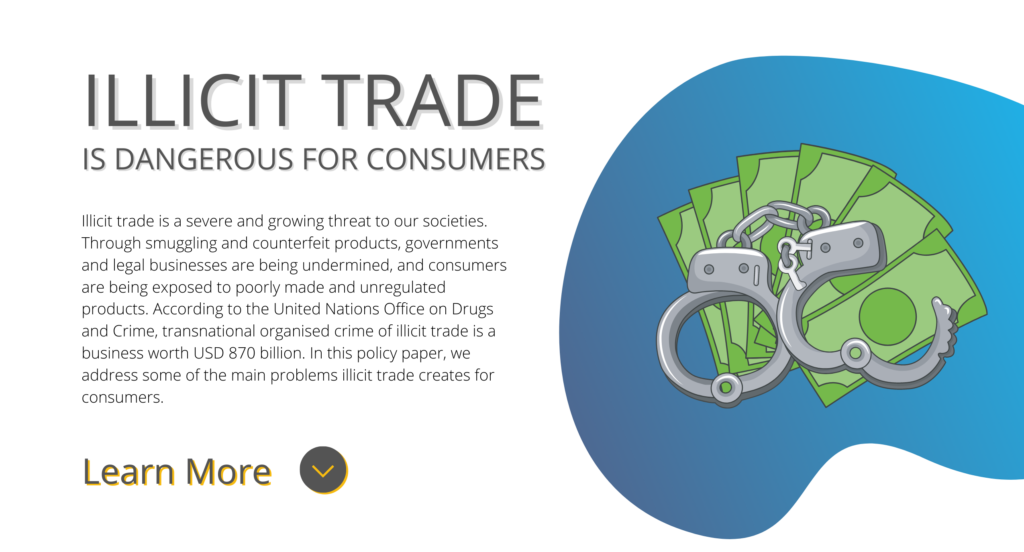
Illicit Trade is Dangerous for Consumers
Illicit trade is a severe and growing threat to our societies. Through smuggling and counterfeit products, governments and legal businesses are being undermined, and consumers are being exposed to poorly made and unregulated products. According to the United Nations Office on Drugs and Crime, transnational organised crime of illicit trade is a business worth USD 870 billion. In this policy paper, we address some of the main problems illicit trade creates for consumers. To prevent the growth of Illicit Trade and the related risks for consumers, our policy recommendations to EU Member States are:
- Member States should moderate tax policies to ensure that tax regimes do not create demand for more harmful illicit alternatives to these products. Proposals that aim to increase indirect taxes such as VAT and excise duties might reduce the consumption of legal products and shift consumer behavior towards the black market. Member States should promote and not block initiatives from the private sector to make brands harder to fake. Branding and brand promotion should be encouraged as the most trusted way of presenting quality and confidence to consumers. Recent proposals to limit and ban branding and advertising do the opposite and enable illicit trade.
- Member States should increase the existing penalties for illicit trading practices to better protect consumers from health and safety risks. Stiffer penalties will reduce incentives to commit illegal acts. Traffickers of illegal goods often prey upon vulnerable and disadvantaged consumers. This harms society writ-large, also depriving governments of essential tax revenues that could limit development initiatives; Regulatory policies and tax policies promoted by the Member States concerning consumer goods should facilitate international trade and promote transparency and predictability to encourage economic growth and development. The core of these policies should take into consideration consumer interests in the exchange of goods and services;
It’s not just luxury goods that are counterfeited or smuggled and sold illegally. Medicines, cosmetics, and electronics are also found on the black market. Anything in high demand is attractive to counterfeiters and smugglers. Fashion items and electronics are among the most counterfeited products worldwide. Counterfeit materials don’t just harm industry and retailers, but also consumers who are faced with increased risks. In January 2020, a cargo ship went up in flames due to shipping containers filled with counterfeit lithium batteries, which were supposed to be sold in Europe. This risk is exceptionally high for consumers. That’s why consumers should demand smart regulations that help distinguish between illegal products and legitimate ones, while at the same time protecting consumer choice.
